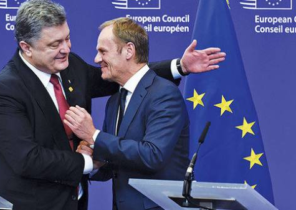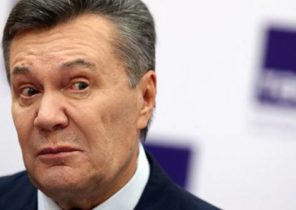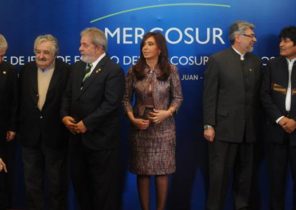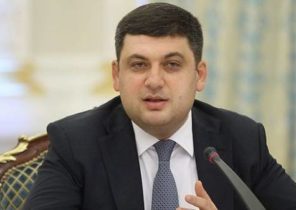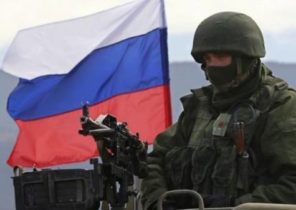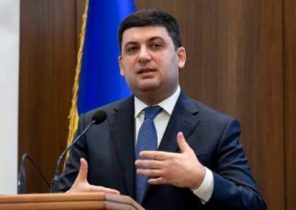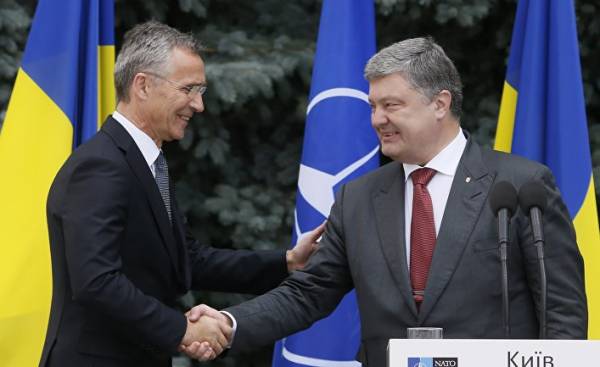
The government of Ukraine reiterated their desire to join NATO. The Alliance says that the doors are open for Ukraine. But this is a bad idea, which over time becomes worse.
Earlier this week the President of Ukraine Petro Poroshenko met in Kyiv with NATO Secretary General Jens Stoltenberg (Jens Stoltenberg) and stated that “Ukraine has clearly defined its political future and the future of security” as a member of the transatlantic Alliance. Poroshenko added that the sides should start discussions on the implementation of the plan of action on preparation for membership in NATO and that his government would conduct reforms in order to “have a clear plan of what needs to be done by 2020” to meet the requirements to the candidates for NATO membership.
Comments Stoltenberg was pretty evasive, but a positive: “NATO will continue to support Ukraine on the path to closer relations with NATO, the implementation of reforms and reach the standards of the Alliance.” According to him, the decision on membership will depend on “allies and Ukraine, and nobody else has the right of veto in this process.” He also added that “NATO will continue to provide Ukraine with practical assistance.”
It is easy to guess why the majority of Ukrainians want the protection of NATO. They need the protection of America. And who will refuse the protection of the global superpower? Ukraine was the first to establish contact with NATO in 1991, when she joined the North Atlantic cooperation Council. Since then Kiev has received assistance and support, providing instead its troops for some operations.
NATO served Western Europeans during the cold war. Since then, the Alliance has entered a number of Eastern and Central Europe. And the Baltic States too. Even Montenegro earlier this year became a member of this Alliance, despite the fact that it is irrelevant to America’s security. Considering that European countries continue to lag the US in terms of military spending, Kiev has decided that he has a chance to get this extremely good deal.
Western officials insist that no third party, that is Russia has no right to affect who can be accepted into the Alliance, and who doesn’t. That in itself is very good. But the reality is somewhat different. Country, which aspires to join should not have the right to vote. The NATO Alliance needs to accept new members only if their membership strengthens the Alliance and enhances overall safety.
And given the fact that the United States will have to assume the lion’s share of the costs and worries in case of conflict with nuclear weapons by Russia, the main issue for Washington is the question about whether to allow the admission of a new member to increase the safety of Americans. Montenegro, which is somewhat reminiscent of the Grand Duchy of Fenwick from the novel “the Mouse that roared” (The Mouse that Roared), is essentially an empty place: this micro-state, whose army consists of 2 thousand people and which threaten no one. Montenegro’s membership has not brought America any good, but it does not hurt her.
Meanwhile, Ukraine is a much less suitable candidate for political reasons and for security reasons. In theory, NATO insists that its members meet certain minimum democratic standards. It is recognized that no hard and fast rules there. Montenegro raises some doubts. The political systems of Bulgaria and Romania leave much to be desired. Such prospective members as Kosovo and Macedonia, there are serious problems now. If the degree of democratization really mattered, the tendency of Turkey to autocracy would not allow her to get to the members of the Alliance.
Kiev is also necessary to go a long way. Though formally Ukraine is a democracy, the current President came to power after street protests against the elected, albeit corrupt President. The oligarchs have enormous power and influence of the President — and the country is now increasing the credibility of radical nationalists. Even European leaders can no longer ignore the obvious. At the recent summit of the EU and Ukraine, held after the approval of the Europe Association agreement, European Commission President Jean-Claude Juncker (Jean-Claude Juncker) said: “We ask… to intensify the fight against corruption because corruption undermines all the efforts of this great country.”
The human rights group Freedom House put Ukraine low assessment of the level of political rights and civil liberties, describing it as “partly free country”. Experts of Freedom House warned that failure to deal with “widespread and high level corruption led to the fall of popularity of the government and had a negative impact on attempts to implement reforms in various sectors”, while “political pressures and attacks on journalists threaten freedom of the press.”
Another U.S. state Department report on the situation of human rights in Ukraine took 60 pages. It was mentioned violations associated with the conflict in the Donbass (although they were more often attributed to separatists), “impunity, corruption and shortcomings in the implementation of justice,” abuse of prisoners, attacks on journalists, human trafficking and forced labour, the failure to punish officials for violations of human rights and the “climate of impunity”.
Russian support for the separatists in Eastern Ukraine, undoubtedly, has contributed to the destabilization of the country, and the true reformers can still come out of the shadows. However, incompetent, authoritarian and corrupt leaders ruled Ukraine since the collapse of the Soviet Union. Even without the intervention of Moscow’s Ukrainian policy could not responsibly to lead Ukraine. And the probability that in the next three years Kyiv has radically changed, is extremely small.
Although political problems in Kiev can be solved, it problems associated with security, much more serious. In terms of security, Ukraine could become a giant black hole for NATO and for America in particular. While the Alliance will have at least distantly related to US security interests, Ukraine will not be NATO.
Historically, Washington was never particularly interested in the fate of the territories, which during the last two centuries was part of first the Russian Empire and then the Soviet Union. Ukraine was considered a “captive country”, whose release in 1991, it met with joy. However, its independence in the military sense did not matter. It is true that the more parts into which the Soviet Union broke up, the better for America, seeking to occupy a dominant position in the world. But the US was far ahead of the Russia that emerged from the Soviet collapse — regardless of the status of Kiev.
Over the past quarter century, nothing has changed. Relations between Russia and Ukraine did not affect the dominant position of Washington, who had a much stronger army, much more powerful economy and a much larger number of allies. Europe has the exact same benefits. In fact, the participation of Moscow in the conflict in the Donbass only weakens Moscow, draining military resources, adding to the hostility in the Ukraine and justifying the economic sanctions. Attempt to conquer the Ukraine would be a disaster for the Russian state.
However, Ukraine’s accession to NATO will inevitably raise the question of the conflict between Moscow and Ukraine edge. Of course, Putin’s government took the wrong position. The seizure of Crimea was a crime, despite the fact that he was supported by many nominal “victims” because in the past the Crimea was part of Russia. Support Pro-Russian separatists in the East of Ukraine did not bring Moscow any good. President Vladimir Putin may have overestimated the desire of the residents of Eastern Ukraine to secede or just intended to weaken Kiev, fanning the conflict. However, the moral aspect does not change the fact that in this conflict, Washington has no place.
America is not in Ukraine any significant interests that would be worth it to confront the nuclear weapon by Russia. Meanwhile, the security interests of Russia are obvious and very serious. Today Moscow is very similar to Moscow in 1914, which sought to maintain its credibility in the international arena and to defend its borders. The US and NATO ignored Moscow’s aspirations when they have expanded NATO up to the Russian border — almost to St. Petersburg. Their actions on the territory of a longtime ally of Russia, Serbia, became another insult. Promises to make the ranks of the NATO Ukraine and Georgia intensified the anger of Russia. And then the allies supported street protests against the elected Pro-Russian President Viktor Yanukovych. Although all these steps may not justify Russia’s policy, they do help to explain the actions of Putin. And, in truth, Washington is unlikely well would react if Russia helped overthrow Pro-American government in Mexico.
Despite the fact that NATO formally welcomes the desire of Kiev to join several European States are extremely skeptical about Ukraine’s membership. Moreover, all candidates are required to settle territorial disputes before they can be admitted to NATO. While the conflict in the Donbas continues, Ukraine can’t join NATO. So if Kiev wants to join the Alliance, and NATO is ready to accept it, Russia has good reasons to keep the fire in the geopolitical pot. Ironically the world can lead to what Moscow fears most, namely, to further NATO expansion.
The us and Russian governments, in cooperation with other NATO member States should try to conclude long-lasting peace. The basis for such a peace must be the promise of America and its allies do not take Kiev in Alliance members. So America and Europe will show prudence in matters of their own security. If Ukraine joins NATO, it will harm their security.
Under this agreement, the Ukrainians will have the right freely to trade with the West and the East, and Kiev will have the opportunity to join the European Union in the case, if you manage to fulfill all the requirements. Russia will not interfere in the policy of Kiev. Ukraine will give more powers to the regions, in particular the Donbas. Moscow will cease to support Pro-Russian separatists. The US and the EU cancel its sanctions against Russia.
The most difficult issue is the Crimea. Moscow must give their consent to the holding of a referendum under the supervision of international organizations and to accept the outcome. However, the Russian government under any circumstances will not give up Crimea. After the annexation, Putin said: “NATO remains a military Alliance. I don’t want in Sevastopol, I was greeted by NATO sailors.” In this case, the best option would be an informal recognition in the absence of a formal.
Of course, Kiev should be free to choose their own course. But the United States and Europe must demonstrate a desire to resolve their disputes with Moscow, if possible. Moreover, under no circumstances will the allies should not give any security guarantees to Ukraine. Ukraine’s desire to join NATO is understandable, but it is contrary to the interests of the current members of the Alliance.
Instead of creating an atmosphere of uncertainty, reinforcing hopes of Kiev and at the same time exacerbating the paranoia of Moscow, the United States and NATO allies must finally tell Ukraine that it has no place in the transatlantic Alliance. Then all parties can move on in search of effective ways of resolving the Ukrainian conflict.
